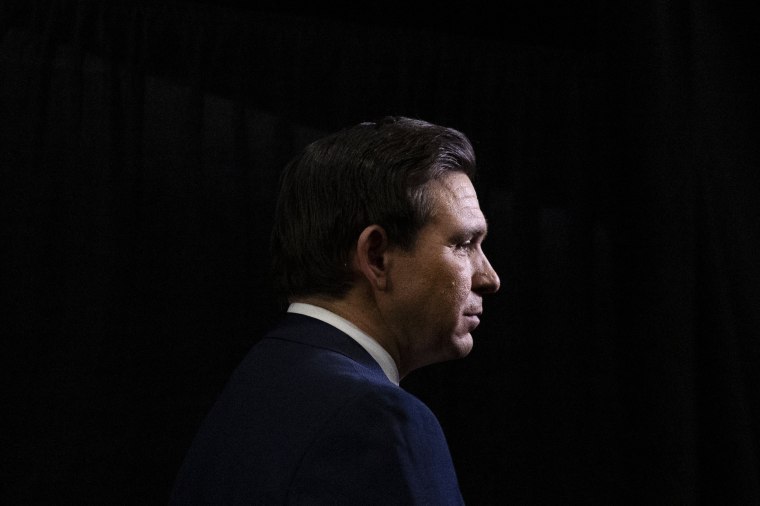When taking stock of Gov. Ron DeSantis’ troubles, it’s easy to start with his faltering presidential campaign. Making matters worse, however, is the Florida Republican’s legal setbacks, which aren’t doing his candidacy any favors. The New York Times reported:
Dealing a blow to Gov. Ron DeSantis of Florida, a federal court of appeals on Wednesday ruled that he had violated First Amendment protections when he suspended a progressive state prosecutor for political gain. The ruling, by the U.S. Court of Appeals for the 11th Circuit, undercut Mr. DeSantis on an episode he has made a key credential in his presidential campaign.
It’s been a while since we last explored this in detail, so let’s revisit our earlier coverage and review how we arrived at this point.
In August 2022, the Republican governor suspended Hillsborough County State Attorney Andrew Warren, complaining that the local prosecutor wasn’t prosecuting the kind of culture war cases DeSantis wanted to see.
A Tampa Bay Times report noted at the time that DeSantis’ order suspending the state attorney did not cite “any specific examples of Warren not prosecuting individual cases, pointing instead to Warren’s public comments on abortion, transgender issues and office policies Warren has adopted.”
The newspaper’s editorial board added that the governor’s move was “politically craven, legally suspect, suspiciously timed and odorously soaked in autocracy, partisanship and bad faith.” Under a headline that reminded DeSantis that he isn’t “the king of Florida,” the Times went on to characterize the suspension as a “gross abuse of power.”
The criticisms were well grounded. DeSantis had already been accused of authoritarian pursuits, and this didn’t help matters. The people of Hillsborough County elected Warren more than once. The governor could’ve tried to help elect a rival candidate in the next election, but instead, DeSantis took it upon himself to suspend the prosecutor and install someone else that he preferred.
In effect, the Republican told Hillsborough County voters, “Sure, you may have chosen a state attorney through the democratic process, but I think I know better.”
Making matters worse, an earlier New York Times report noted while DeSantis said his move against Warren was necessary in the interests of “public safety,” the claim was completely baseless: “Mr. DeSantis and his advisers had failed to find a connection between Mr. Warren’s policies and public safety in his community.”
In fact, the Times added that the Republican’s lawyers lamented the fact that they couldn’t find anything in the local crime statistics to justify the local prosecutor’s suspension.
DeSantis suspended the state attorney anyway. The point, by all appearances, was to give the governor something else to brag about on the presidential campaign trail — a concern that was soon confirmed when the Floridian started boasting to Iowans about ousting the progressive state prosecutor.
But DeSantis did not have the final word on the subject. The 11th Circuit took a closer look and concluded what was plainly true: The governor targeted Warren for political purposes based on comments the prosecutor made about major issues of the day.
The matter is now headed back to a lower court, but in the meantime, it’s worth pausing to appreciate just how frequently the GOP governor’s culture war efforts have struggled in the courts. Last summer, for example, DeSantis’ policies against drag shows and trans care have suffered legal setbacks, which were part of a lengthy pattern.
DeSantis also lost when a court blocked Florida’s “Stop WOKE Act”; his anti-protest measure was also blocked by a federal judge; the Republican’s law to regulate social media companies was blocked by a different federal judge; and the cases brought by his elections police unit have largely fallen short.
All things considered, “Vote for me because judges rejected many of my favorite achievements” might not have been the pitch GOP primary voters and caucus-goers were looking for.
This post updates our related earlier coverage.

